Amp Buzzing When Cable Plugged In [Reason & Fix]
Amp buzzing when the cable is plugged in can be frustrating for guitarists. In this guide, we will explore the reasons behind the buzzing, understand the factors contributing to it, and provide practical solutions to fix the issue. From electrical interference to grounding problems, we’ll cover a range of techniques to achieve a noise-free amp setup. Let’s banish that unwanted buzz and unlock the full potential of your guitar’s sound.
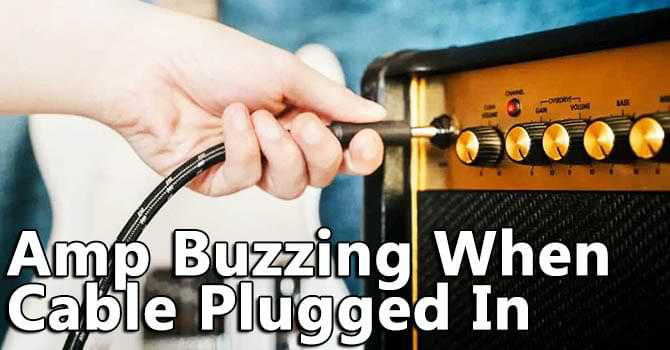
# Table of Contents =>
A) Understanding the Causes of Amp Buzzing
Before we can tackle the issue, it’s essential to grasp the underlying factors that cause amp buzzing when the cable is plugged in. Identifying the root causes will enable you to apply targeted fixes and significantly improve the sound quality of your amplifier.
i) Electrical Interference:
a) External Sources:
Amp buzzing can be caused by external electrical sources, such as power lines, fluorescent lights, computers, or other electronics near your amplifier.
b) Unshielded Cables:

Poorly shielded instrument and speaker cables can pick up electromagnetic interference, leading to buzzing.
ii) Ground Loops:
a) Grounding Issues:
Ground loops occur when there are multiple grounding paths, creating a hum-inducing loop. This commonly happens when various pieces of audio equipment are interconnected.
iii) Dirty Connectors:
a) Oxidized or Dirty Contacts:
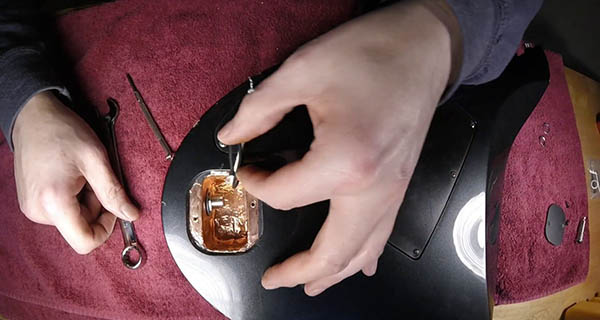
Corrosion or dirt on the connectors of your cables, guitar jack, or amp input can cause a poor electrical connection, leading to buzzing.
Fix: Amp Buzzing When Cable Plugged In –
B) Effective Solutions to Eliminate Amp Buzzing
Now that we understand the possible causes of amp buzzing, let’s explore the most effective ways to fix these issues and achieve a noise-free playing experience.
i) Isolate the Issue:
a) Troubleshoot Cables:
Test different cables and connectors to determine if a faulty cable is causing the buzzing.
b) Change Power Outlets:
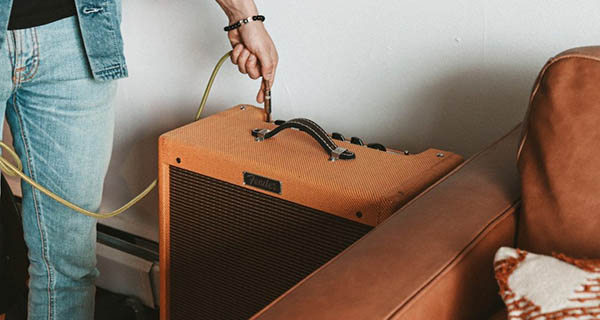
Plug your amp into different power outlets to see if electrical interference is the culprit.
ii) Use High-Quality Shielded Cables:
a) Invest in Quality Cables:
Upgrade to high-quality, shielded instrument and speaker cables to reduce interference and buzzing.
iii) Separate Signal and Power Cables:
a) Keep Cables Apart:
Ensure that audio cables are kept away from power cables to minimize electromagnetic interference.
iv) Ground Lift:
a) Lift Ground Connection:
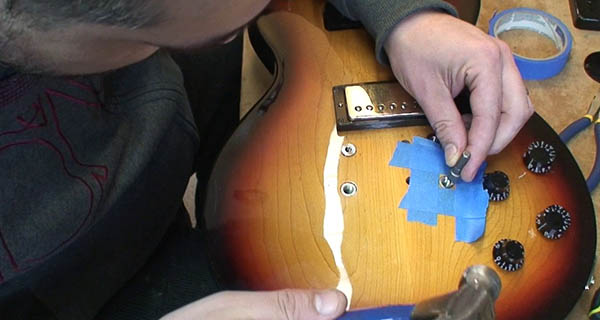
Use a ground lift adapter on one end of the cable, either at the amp or the input device, to eliminate ground loops. However, use this solution with caution as it may not be suitable for all setups.
v) Isolate Amp from Vibration:
a) Check for Loose Parts:
Inspect your amp for any loose parts or screws that may vibrate and cause buzzing during play.
b) Use Rubber Feet or Isolation Pads:

Place rubber feet or isolation pads under your amp to reduce vibrations and unwanted noise.
vi) Check Amp Tubes:
a) Tube Inspection:
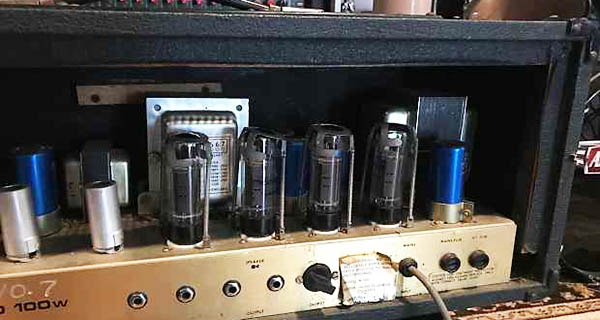
Examine your amp tubes to ensure they are securely seated in their sockets. Loose or failing tubes can cause buzzing and other sound issues.
b) Replace Faulty Tubes:
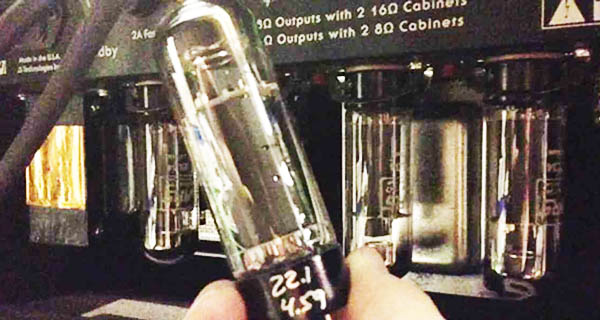
If you suspect a faulty tube, consider replacing it with a new one to restore optimal performance.
vii) Clean Connectors:
a) Use Contact Cleaner:
Apply contact cleaner to the connectors of your cables, guitar jack, and amp input to remove corrosion and dirt, ensuring a reliable electrical connection.
viii) Address Grounding Issues:
a) Implement Star Grounding:
Use a star grounding system where all ground connections meet at a single point to reduce ground loops and hum.
b) Professional Assistance:
If you encounter persistent grounding issues, consult a professional amp technician to ensure a proper and safe grounding solution.
C) Tips for Noise Reduction
In addition to the above solutions, here are some extra tips to further reduce unwanted noise in your amplifier setup:
Keep Electronics Away: Avoid placing cell phones, laptops, or other electronic devices close to your amplifier to minimize interference.
Use a Power Conditioner: Consider using a power conditioner to regulate the electricity supplied to your amp, reducing electrical noise.
Shield Amp Electronics:
a) Shield the Amp:
If you’re comfortable with electronics, shield the inside of your amplifier to minimize electromagnetic interference.
Noise Gates:
a) Noise Gate Pedal:

Incorporate a noise gate pedal in your signal chain to eliminate buzz during silent passages.
In the End, Amp buzzing when the cable is plugged in can be a frustrating issue, but armed with the knowledge and effective solutions outlined in this guide, you can eliminate unwanted noise and enjoy a pristine tone during your playing sessions. Remember, troubleshooting the problem may require some patience and experimentation, but the reward of a noise-free amp is well worth the effort.
By implementing proper cable management, using high-quality shielded cables, addressing grounding issues, and ensuring clean connectors, you can significantly reduce buzzing and humming in your amplifier setup. Extra, taking care to separate audio and power cables and keeping electronics away from your amp will further contribute to a noise-free environment.
As you embark on this journey to achieve a noise-free amp, embrace the satisfaction of hearing your guitar’s true tone without any interference. Enjoy the newfound clarity and focus on making music that moves both your soul and your audience. Happy playing!
Last Updated on September 14, 2023 by Perry Garner


